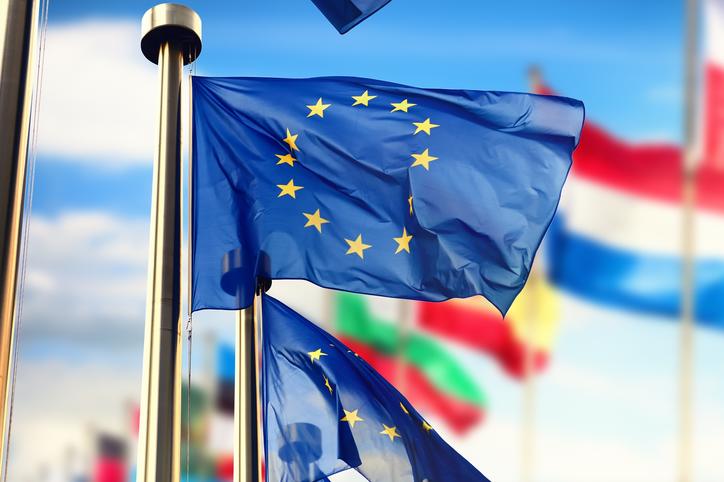64 European Universities were selected between 2019 and 2024 under the dedicated Erasmus+ programme call with the aim of inventing the European university of the future.
The European Universities initiative
The project to create European Universities alliances follows a speech by French President Emmanuel Macron at the Sorbonne on 26 September 2017, which proposed creating “European universities, networks of universities which allow students to study abroad and follow classes in at least two languages”.
The European Commission went on to launch a call for proposals in 2019, 2020, 2022,2023 and 2024, which selected a total of 64 alliances, involving 560 European institutions. 63 French higher education institutions (HEIs) are involved in an alliance. France is the 2nd most represented country in terms of the number of institutionss involved (63), behind Germany (66). Spain comes third with 55 establishments.
The initiative is now a key part of the Erasmus+ programme for 2021-2027, that planned a record 1.1 billion euros of Erasmus+ funding for the period 2021-2027 to support these new alliances, which should over time improve the quality and competitiveness of European higher education.
In parallel with the last call for 2024, the "FOREU4ALL" project was also selected, with the aim of strengthening the exchange of good practice between alliances by creating a community of practice and strengthening synergies beyond the alliances themselves. This project brings together all the European alliances.
What is a European University?
European Universities are transnational alliances located in EU member states and countries participating in the Erasmus+ programme (and, since the 2023 call, the Western Balkans) with an average of 8 to 9 partners. Bologna Process member states like the United Kingdom and Ukraine have been permitted to take part in the project since 2022 as associated partners. For instance, in the 2023 call, 30 Ukrainian institutions joined an alliance as associate partners.
The aim of the alliances is to shape the university of the future through a long-term shared strategy of excellence in training and research involving:
- Innovative teaching methods with best practice exchanges and an interdisciplinary approach
- The promotion of multilingualism and European values and identity
- The outreach towards society to tackle the major challenges of our times
Several criteria have been set for project selection:
- The creation of an inter-university campus that allows for the mobility of at least 50% of students
- The use of student-centered curricula , who can put together a tailor-made study programme with interdisciplinary teaching based on challenge-based learning
- The geographical balance of the alliance
- Its sustainability strategy
Which French universities are involved in an alliance?
63 French higher education institutions are currently involved in 53 of the 64 selected alliances; 16 institutions are currently alliance coordinators.
Two crucial issues: the European degree and legal status
The European strategy for universities presented in 2022 by the European Commission seeks to develop a truly European dimension to the higher education sector. On this basis, a call for proposals was opened by the European Commission for European policy experimentation in higher education.
A total budget of 2 million euros was set aside to support European Universities in :
1) looking at joint criteria leading to a European label that would facilitate the delivery of joint degrees, and
2) exploring the feasibility of institutionalised cooperation instruments such as a legal status for alliances.
10 projects were launched in January 2023. 6 of the projects selected are working on setting up a European Degree Label which would be a complementary certificate to the qualification awarded to students graduating from joint programmes under a European alliance. Creating this label is a step towards a new joint European Degree that aims to foster student mobility. The label should reflect the skills acquired under the interdisciplinary joint programme followed at various institutions and in multiple languages.
The 4 other projects aim to enable European Universities alliances to introduce a European legal status. This would give alliances freedom to take action together, make joint strategic decisions, experiment with joint courses and recruitment, or pool human, technical, data, teaching, research and innovation capacities.
In partnership with relevant national, regional and/or institutional authorities, these one-year pilot projects will deliver proposals for the alliances.
Related contents
- Support for French institutions in a European alliance from the French Ministry of Higher Education and Researchhttps://www.enseignementsup-recherche.gouv.fr/fr/les-universites-europeennes-46476
- European Universities alliances and their partnershttps://education.ec.europa.eu/education-levels/higher-education/european-universities-initiative/map
- Factsheet about the initiativehttps://education.ec.europa.eu/document/factsheet-european-universities-a-key-pillar-of-the-european-education-area
- Sorbonne speechhttps://www.elysee.fr/emmanuel-macron/2017/09/26/initiative-pour-l-europe-discours-d-emmanuel-macron-pour-une-europe-souveraine-unie-democratique
- Erasmus+ France Education Formation national agencyhttps://agence.erasmusplus.fr/
Recommended items






















































